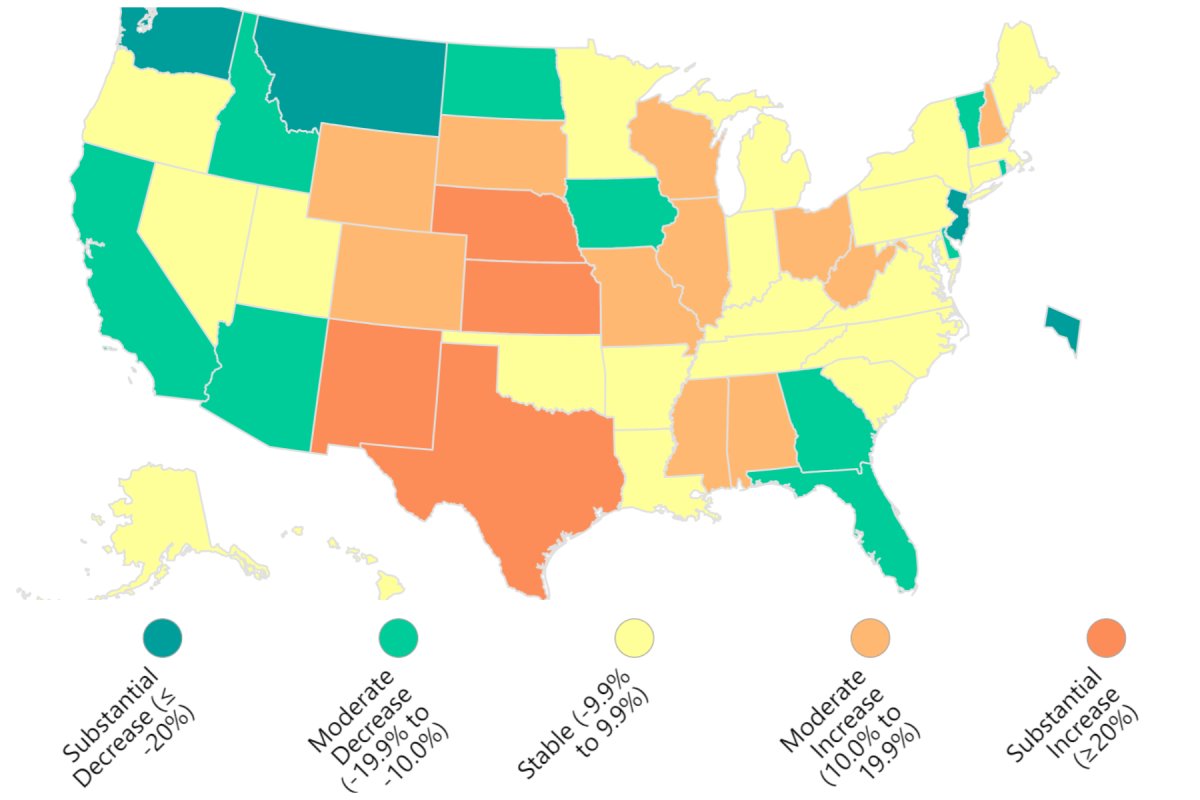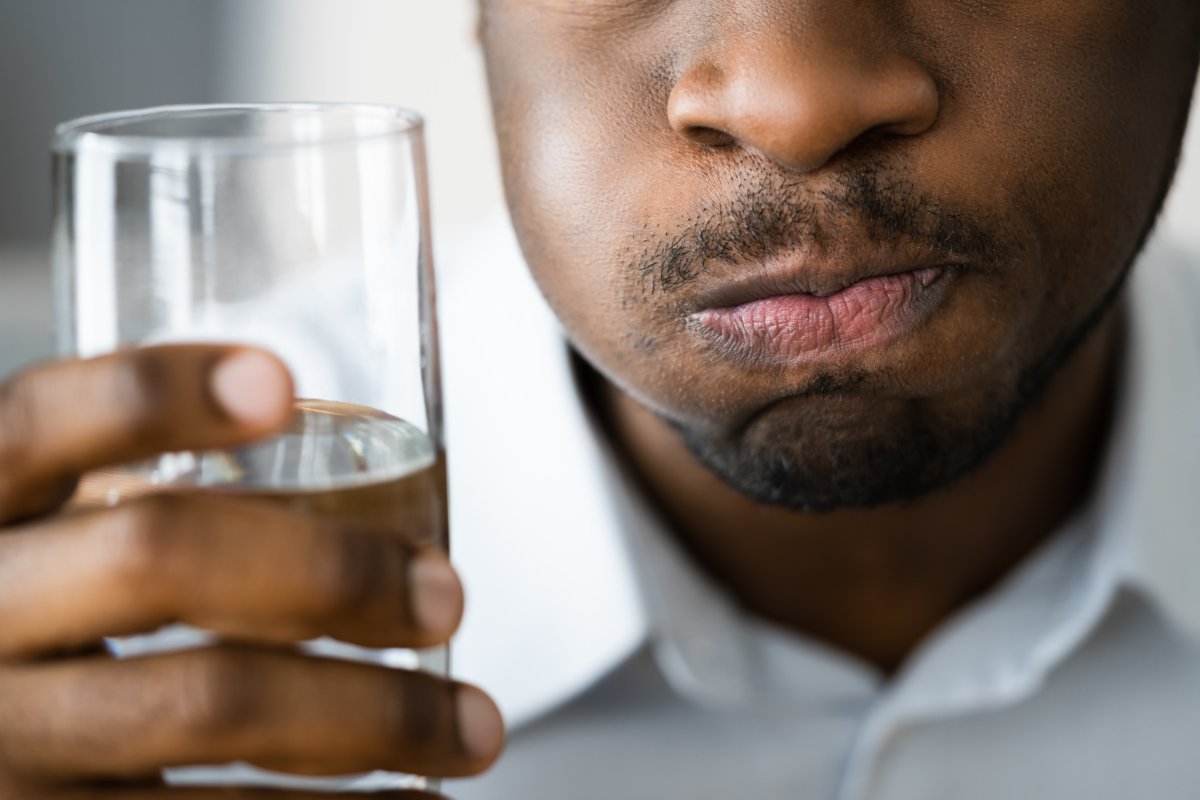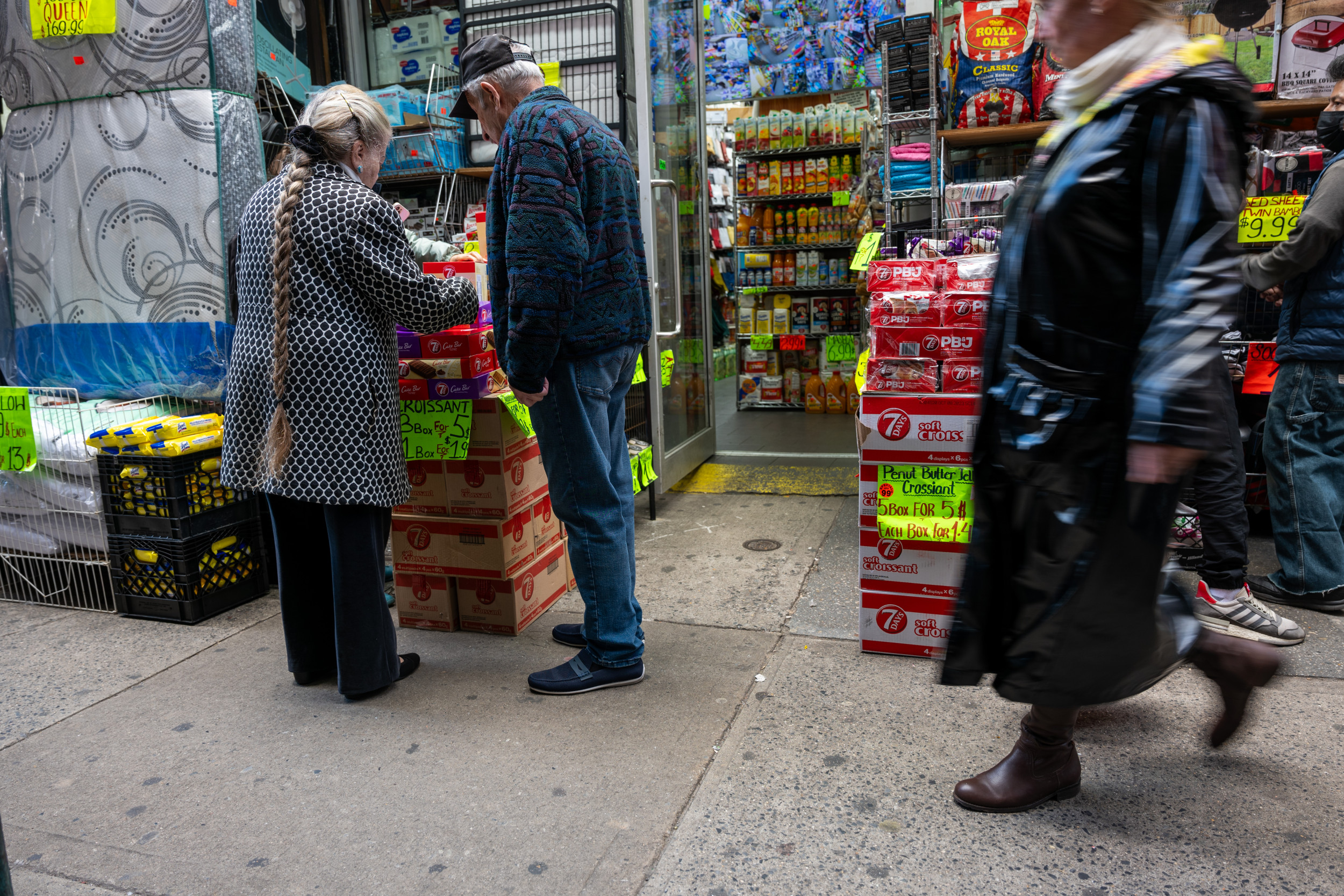Hospitalizations from COVID-19 infections have been creeping up recently in the Southern and Midwestern states, despite dropping across the country as a whole.
In the week ending October 28, 15,745 new people were admitted to hospital with COVID across the U.S., down from the 16,186 COVID hospital admissions the week before. This equates to around 4.74 per 100,000 people countrywide.
However, hospitalization rates jumped significantly in several states, including Texas, New Mexico, Kansas and Nebraska.

Texas saw a 26.6 percent increase in hospitalizations from the week before, with 1,209 new people admitted in the week ending October 28, Centers for Disease Control and Prevention (CDC) data shows. New Mexico saw a 23.9 percent jump, Nebraska spiked by 57.3 percent, and Kansas increased by 23.4 percent. Due to a smaller number of hospitalizations previously, these increases only represented an extra 145, 129 and 211 people being admitted, respectively.
Other states that have seen an increase in COVID hospitalizations are Colorado, with an 11 percent rise, Wyoming at 17.9 percent, South Dakota at 14 percent, Missouri at 14.6 percent, Illinois at 13.3 percent, Wisconsin at 14.4 percent, Mississippi at 17.2 percent, Alabama at 19.1 percent, Ohio at 13.7 percent, West Virginia at 15.5 percent and New Hampshire at 16.2 percent.
Several other states have seen falling COVID hospitalizations, however, with some of the largest decreases in hospitalization rates over the week before October 28 being seen in Washington, which dropped by 20.3 percent, Montana, which declined by 39.8 percent, and New Jersey, with a 20.8 percent drop.
New York and California saw a large number of new hospitalizations at 1,254 and 1,551, respectively, but these were a decrease from the week earlier. In California, hospitalizations fell 14.4 percent, while in New York, there was a 0.7 percent decline.
Gargling Saltwater May Help Prevent COVID Hospitalizations
According to a new study being presented at this year's American College of Allergy, Asthma and Immunology (ACAAI) Annual Scientific Meeting in Anaheim, California, COVID hospitalizations may be prevented by gargling or nasal rinsing with saltwater.
The study found that patients who gargled and did nasal rinsing with saline had significantly lower hospitalization rates than those who did not.
"Our study suggest that nasal rinsing and gargling with saltwater may reduce hospitalizations associated with COVID 19 infections," Jimmy Espinoza, a professor of Obstetrics, Gynecology and Reproductive Sciences at McGovern Medical School at the University of Texas Health Science Center Houston (UTHealth), and co-author of the study, told Newsweek.
"This observation is derived from a comparison of our two study groups with the reference population, which was composed of individuals who were diagnosed with COVID-19 infection but who did not use saltwater during the study period (2020-2022). The hospitalization rates in the latter group were more than twice as much compared to a groups or patients who used either low concentration or high concentration of saltwater for 14 days."
This may be because the saltwater prevents the COVID viruses from replicating and thriving inside the body, although the researchers are still unclear as to the exact drivers behind this finding.

"The virus associated with COVID-19 infections tend to replicate in the upper respiratory tract. It is possible that frequent gargling and nasal rinsing with saltwater may create a hostile environment for viral replication, which may in turn reduce the severity of the disease and reduce the chances for hospitalization. However, these are only speculations, all these possible explanations need to be tested by more rigorous studies designed to address these specific research questions," Espinoza said.
"Our study was designed to compare the duration or symptoms and hospitalization rates between individuals allocated to either low concentration or high concentration of saltwater and not to compare these outcomes with the reference population. Thus, additional studies are required to confirm our observations."
Case positivity rates have been creeping up across the country, with 9 percent of COVID tests coming back positive in the week ending October 28. It was 8.7 percent a week earlier.
The states with the highest case positivity rate included Colorado, Montana, North Dakota, South Dakota, Utah and Wyoming.
COVID deaths decreased in the week ending October 28, with only 2.5 percent of total deaths being due to COVID. The week before, this was 2.7 percent. Some of the states with the highest COVID death rates include Kentucky, with 4.8 percent of deaths due to the virus—up 23.1 percent from the previous week's rate—Kansas and Massachusetts at 3.6 percent, Connecticut and West Virginia at 3.7 percent, and Colorado at 3.5 percent.
Do you have a tip on a science story that Newsweek should be covering? Do you have a question about new COVID-19 hospitalization cases? Let us know via science@newsweek.com.
Update 11/9/23, 11 a.m. ET: This article was updated with additional information about a new study and comment from Jimmy Espinoza.
Uncommon Knowledge
Newsweek is committed to challenging conventional wisdom and finding connections in the search for common ground.
Newsweek is committed to challenging conventional wisdom and finding connections in the search for common ground.
About the writer
Jess Thomson is a Newsweek Science Reporter based in London UK. Her focus is reporting on science, technology and healthcare. ... Read more
To read how Newsweek uses AI as a newsroom tool, Click here.






